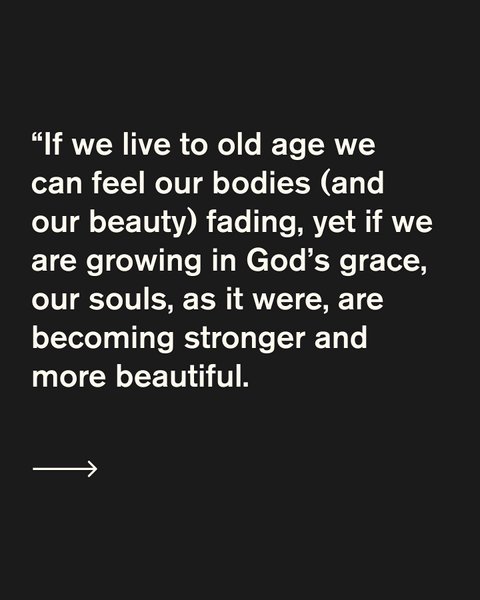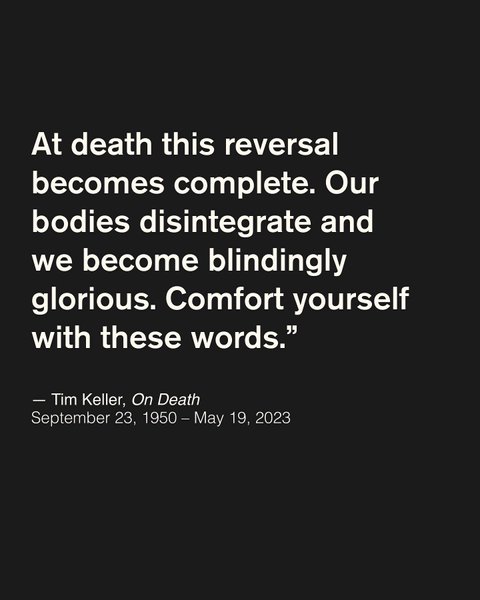Sublime
An inspiration engine for ideas
Christians to participate in a city’s culture more fully than the Jews in Babylon could. However, this freedom also makes the danger of assimilation and compromise more acute for Christians.
Timothy Keller, Daniel Strange, Gabriel Salguero, • Center Church
1 Corinthians 9, speaks to our motive for contextualization,
Timothy Keller, Daniel Strange, Gabriel Salguero, • Center Church
A walk is day in and day out praying; day in and day out Bible and Psalms reading; day in and day out obeying, talking to Christian friends, and going to corporate worship, committing yourself to and fully participating in the life of a church. It is rhythmic, on and on and on. To walk with God is a metaphor that symbolizes slow and steady
... See moreTimothy Keller • Walking with God through Pain and Suffering
If you were to ask what God is doing, what he is working on between the “already” of your justification and the “not yet” of your sanctification, the answer could be given in one word: change.
Paul David Tripp • New Morning Mercies
Warfield on the Christian Life (Foreword by Michael A. G. Haykin): Living in Light of the Gospel (Theologians on the Christian Life)
amazon.com
The gospel must be used to cut away both the moralism and the licentiousness that destroy real spiritual life and power.13
Timothy Keller, Daniel Strange, Gabriel Salguero, • Center Church
The divine Son never ceases (note the word “always”) to bring his atoning life, death, and resurrection before his Father in a moment-by-moment way. Christ “turns the Father’s eyes to his own righteousness,” wrote Calvin, “to avert his gaze from our sins. He so reconciles the Father’s heart to us that by his intercession he prepares a way and
... See moreDane C. Ortlund • Gentle and Lowly
At one end of Niebuhr’s scale are those who see Christ against culture and see the Christian duty as withdrawal from the world; at the other end are those who see culture as so fully agreeing with Christ that they can make him a Christ of culture. A more moderate version of the first is to see Christ and culture in paradox—to acknowledge the
... See more
